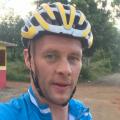
I AM flicking the pages of a book called Ichigo Ichie.
I feel the world around me slowing down, as if everything has paused and I feel a sense of stillness in my mind.
In today’s world this is a rare experience for many of us.
We are constantly chasing the next thing, the next meeting or next medal.
The art of living in the present moment is the running theme of this Japanese book.
The longer I spend with this it the more I reflect on time.
It is the one thing we have no control over.
It’s one thing even Bill Gates can’t buy more of.
Most people don’t pause to contemplate time, or even to think about their own mortality.
Inside most people’s minds is the non-stop radio that is life playing away.
I know the subject of death can be a difficult topic but ancient philosophers knew the power of contemplating their own death and the ability it gave them to live in the present.
This in turn allowed them to use their time more effectively.
I have spent the last week looking at how I spent each second of my days and knowing that each moment will never happen again the way it did.
The people I have met, I might never see again and that each breath I took I can’t get back.
That clock to my own death is ticking.
This drives me to make a commitment around living more.
Psychologists say that when you face a huge trauma in life it forces you to look at life differently and my cancer has certainly done that.
I guess the blessing in my situation it took me on a path of awareness I probably would never have discovered.
There is an overwhelming amount of people who are currently facing diagnoses and as we all know early diagnosis is extremely important.
But it is a scary thing taking that step to contact a doctor if you don’t think things are right inside your body.
It is easier sometimes to ignore those signs and hope they go away.
That call also right now is also not easy as we face a massive back log post lockdown.
In many ways this highlights the benefit of sport.
When you’re an athlete you constantly track your body.
Even the slightest change can be tracked in your performance.
Now the last thing on most people’s mind when they have drops in performance is that they may have cancer.
I know during my road to diagnosis no one ever mentioned the word tumour to me.
In many ways the athletes’ mind is set on how they can push harder and their relationship with time is about going faster.
This is the complete opposite to when you face mortality, here you want to slow everything down not go faster.
This is a journey Andrew McAsian knows well, and one that started three to four years out from that devastating day when he was told that he had an incurable blood cancer called non-Hodgkin follicular lymphoma.
I am sure it was the last thing the 800m runner expected to hear.
What started off as drops in fitness and feelings of fatigue during 2020 would then lead to him performing under par in races this year.
This would trigger any athlete to dig deeper into the why behind these feelings and results.
At first McAsian thought it might have been linked to his glandular fever in 2018 as this can impact the body hard and leave many people struggling for years after the virus.
That journey of setting out to find answers is a nerve wracking one and a frustration, life stops in many ways and your days become consumed with research and with Dr Google only a button away it is easy to start reading to much.
Like my journey Andrew was told he had other conditions, and no one thought it was cancer.
One doctor ruled cancer OUT as he said the 25-year-old athlete was too young to have cancer.
As things were not improving and no matter what Andrew did on the back of each doctor’s appointment, he was not feeling better, so he started to push for a scan.
I can close my eyes and relate to how he must have felt going into the scan, the unknown and the uncertainty around what it may discover, but also the peace of mind that you will have an answer to why you have felt so unwell.
By now Andrew had lumps appearing and his cancer was at stage 4.
When I read this, it was heart-breaking and like so many others he now faces something I wish no one had to face and especially at 25.
As I sit looking out the window at the rain bouncing of the road I think of how Andrew and what we can all learn from him about our relationship with time and how we use it.



Comments & Moderation
Readers’ comments: You are personally liable for the content of any comments you upload to this website, so please act responsibly. We do not pre-moderate or monitor readers’ comments appearing on our websites, but we do post-moderate in response to complaints we receive or otherwise when a potential problem comes to our attention. You can make a complaint by using the ‘report this post’ link . We may then apply our discretion under the user terms to amend or delete comments.
Post moderation is undertaken full-time 9am-6pm on weekdays, and on a part-time basis outwith those hours.
Read the rules here